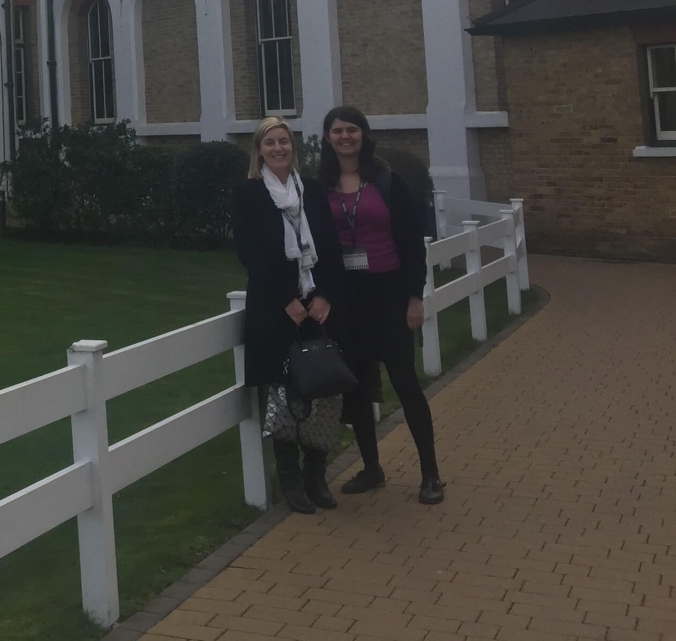In March 2019, Team Up delivered their first Financial Literacy workshop to Years 8 & 9 at St Angela’s Ursuline School for Team Up pupils. The workshop lesson is the brainchild of Team Up Trustee John Mullins from Santander and Sam Duffy from HSBC.
In March 2019, Team Up delivered their first Financial Literacy workshop to Years 8 & 9 at St Angela’s Ursuline School for pupils who attended our Team Up tuition programme for Maths and English.
The purpose of this workshop is to help young people understand the basics of budgeting and the importance of saving to pave the way to make sound financial decisions whilst showing the pupils how maths can be applied to real life scenarios.
The workshop lesson is the brainchild of Team Up Trustee John Mullins from Santander and Sam Duffy from HSBC. Together with Joanna Pickets, Programme Manager at Team Up and Natasha Westover, Interim CEO & Trustee at Team Up they developed a 1 hour interactive workshop.
Sam Duffy, Financial Expert:
“Team Up’s Financial Literacy workshop is a great way to provide children without access an opportunity to learn how to budget, save, bank online and apply for a suitable loan; taken for granted, an education in the basic elements of personal finance can have a huge impact upon someone’s confidence, growth and decision making.
I was lucky to have been exposed to a wide range of role models throughout my childhood, who I could ask questions of and learn from, which allowed me a great variety of choice as a I grew up and when deciding who I wanted to become. I hope to widen the variety of person who the children Team Up work with are exposed to.”
John Mullins, Team Up Trustee and Financial Expert:
“Because I have seen financial stress caused in large part by predatory lending practices and poor financial literacy destroys lives and offset the benefits of better education. If we are going to bother trying to help kids get better jobs, we should give them the skill set to make the most of the rewards.
While in many respects the education system here in the UK does a good job preparing kids for life in the real world, there are some important skills that are neglected- the most important is financial literacy. This neglect has a hugely disproportionate impact on lower income kids whose parents struggle under the burden of predatory lending practices and underdeveloped financial know how- wealthier families tend to be better at passing this knowledge on. Poor financial decisions can cripple even the most academically qualified young professionals.... this course is supposed to help kids learn the basic skills required to avoid the pitfalls of the modern financial world and make the most out of their future success.
People born into wealthy families benefit from a host of advantages aside from just inherited wealth ranging from a better education to a more stable home life. One often ignored benefit is that people born into families that have built wealth inherit the knowledge of how that wealth was accumulated in the first place. This is backed up by OECD data, which found in a 2015 study of financial literacy that economically disadvantaged students were more likely to perform poorly in financial literacy tests. Important concepts that form the basis of financial literacy like the power of compound interest, saving for retirement, or basic budgeting are often not instilled in young people from poorer backgrounds for the simple reason that their parents are often ill-equipped to teach their children these all important life skills. A recent study by the OECD attempts to measure the number of generations it would take a person born in the bottom 10% of the wealth distribution to reach the mean income of their respective country. According to this study, it would take a person born among the bottom 10% in the UK, five generations to achieve this fairly unambitious feat. Obviously financial literacy is only part of what is holding back the most vulnerable parts of society from achieving a mediocre standard of living, but poor financial literacy has often been linked to lower levels of income, higher debt and overall wellbeing. Poor financial decisions, especially as it pertains to debt, trap people in a vicious cycle of poverty that can be all but impossible to escape.
Financial literacy does not come intuitively to the human mind, it is something that must be taught, learned and practiced. By the time a person hits the age of 25, they may well have already piled up debt from the college years and early defaults can so easily have locked them out of the banking system. In a world of pay day loans, waiting for life to teach our young people the basics of financial literacy is not a sustainable policy, not to say that it ever really was.”
Following the success of this pilot, Team Up are currently developing a curriculum of financial literacy workshops to be offered to our school partners in future with the support of corporate sponsorship.
